The Hammer To Fall On Hocus Pocus
Oct 28, 2018
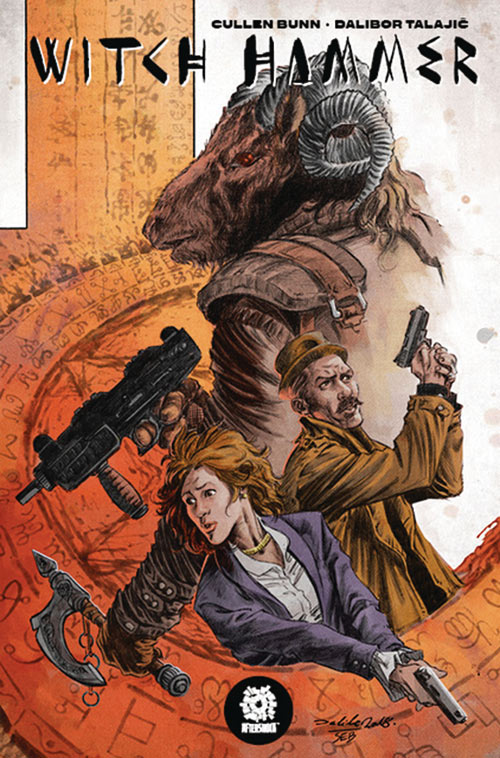 |
by Vince Brusio
Say the word “witch,” and you conjure images of broomsticks, boiling cauldrons, and hideous hags that cackle while they cook you in a stew pot. Unless, of course, one thinks of The Witches of Eastwick. That was a game changer. But Cullen Bunn’s Witch Hammer (SEP181387) also changes the game because it moves the needle to smash stereotypes. It does not portray witches in typical Halloween attire, but instead presents them as they typical American neighbor. Quite the opposite of a cartoon counterpart. Cullen explains in this PREVIEWSworld interview that in his new graphic novel, it may not be so easy to judge all witches by the webs that they weave. You might even like them.
**********
Vince Brusio: In this new graphic novel, we’re told that witches have gone from hags with large boils on their noses to people who could live next door to us in suburban America. They even could be our family members. What brought about that idea for this story?
Cullen Bunn: This all started with me wanting to tell a story about a vigilante hunting down witches. But, in order to elevate the stakes of the story, I couldn't make these witches cackling gingerbread-dwelling hags. I wanted them to be real people, practicing their own religion. I wanted them to be people who are simply looking for something more out of life, people who want to see evidence of something greater than themselves, people who want reward in this life, not the next. I feel like this desire is understandable, whether you agree or not. I wanted the "witches" to be people you might know, because when the blood starts flowing, I wanted it to be frightening.
Vince Brusio: How is this entertainment a different flavor of the month for Cullen Bunn? How are the ingredients in this book different from what you’ve done in, say, Regression, Harrow County, or Empty Man?
Cullen Bunn: Comparing this story to some of my other horror work, Witch Hammer is much more grounded in the real world, at least on the surface. It is seen through the lens of a dark crime story. A murder mystery, perhaps. In many horror stories, you can trust certain elements. The witches are evil. The heroes or victims are clearly defined. But in Witch Hammer, that's not always the case. As you enter this story, the "villain" of the piece will seem to be clearly defined. That, however, will change as the story progresses. At least, it will change for some readers. Others will read the same story and have a vastly different take on it. I want this story to raise questions about who is right, who is wrong, and I want the answers to those stories to change along the way.
Vince Brusio: Help us get to know who’s got some skin in the game for Witch Hammer. Introduce us to the players. What drives Agents Frontenac and Guinness to do their jobs?
Cullen Bunn: Frontenac and Guinness are federal investigators trying to catch a killer who is cutting a deadly path of murder and destruction across America. They have learned that he has a particular type of target in mind — those who practice witchcraft. Frontenac is a woman of faith, and she is somewhat uncomfortable as she discovers this hidden religion. But she is also a woman with a responsibility to uphold the law, so she must put her own faith on hold here. Guinness, on the other hand, believes in nothing. Any semblance of faith has been beaten out of him by a long, cold life, leaving him cynical and sardonic. Both Frontenac and Guinness are going to find their beliefs challenged in more ways than one.
Vince Brusio: When you conceive of the personalities for the people in Witch Hammer, when you decide what makes them tick, how do you feel about them before and after making them into fiction? Do you ever have a Frankenstein moment, when you sit back and say, “My God, what have I done?”
Cullen Bunn: All the time! These characters, if I'm doing my job right, take on a life of their own. That means that sometimes (most of the time) they make decisions that I might not make myself. They may believe things that I don't believe. They may be better than I would be or they may be worse. I don't write characters who are reflections of myself. I want to create new characters that I might love or hate. That means they can surprise you. In Witch Hammer in particular, these characters — both the heroes and the villains — make some shocking choices, and I love to see that play out on the page.
Vince Brusio: If you could give us a glimpse into the chaos factor that’s in store for readers of Witch Hammer, what imagery or event could you foreshadow that would make people take out an insurance policy before they sit down to read this book from AfterShock Comics?
Cullen Bunn: There's a moment when the reader finally sees the story through the killer's eyes. It happens a little ways into the book. When that happens, it changes everything. It shakes the very reality of the story to its core. A little later, we reveal some more truths about the killer, and when that happens it will knock the readers on their behinds.
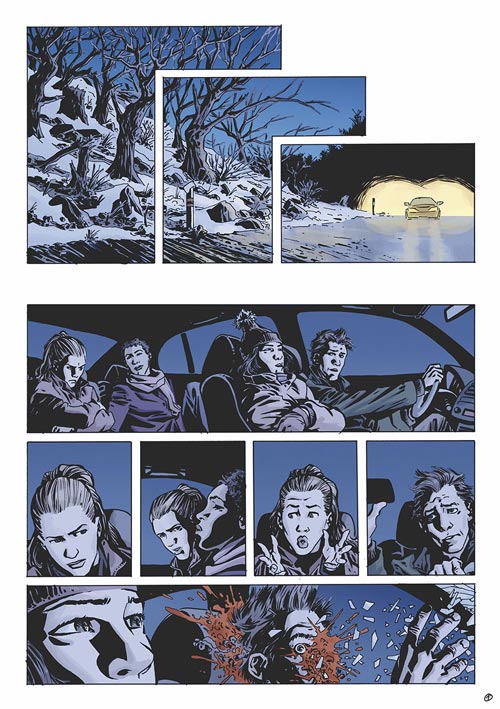 |
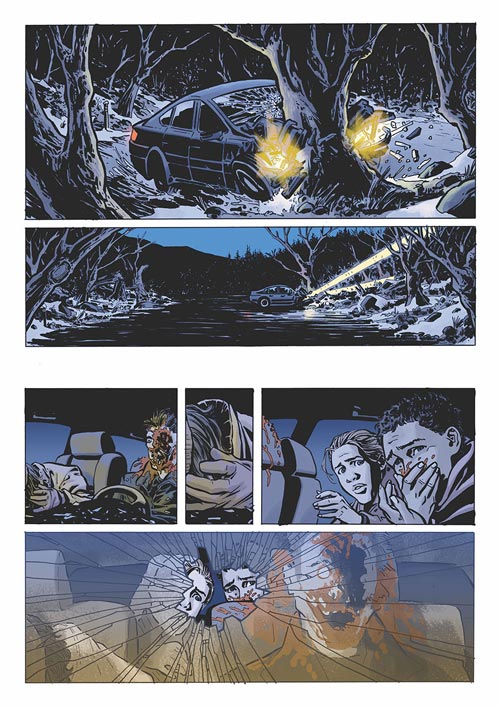 |
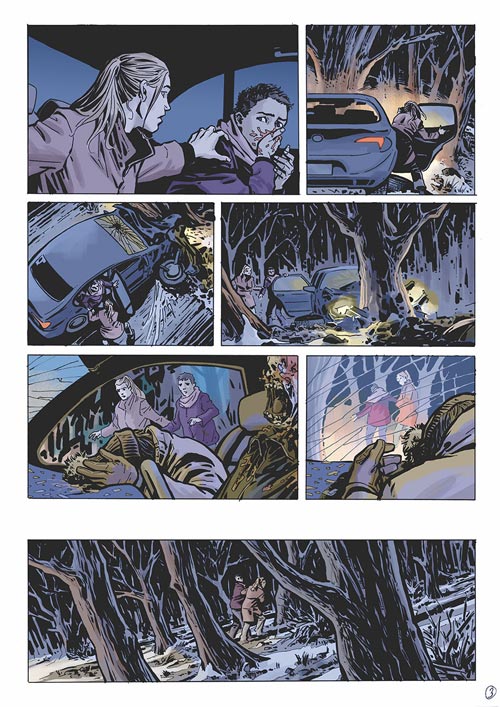 |
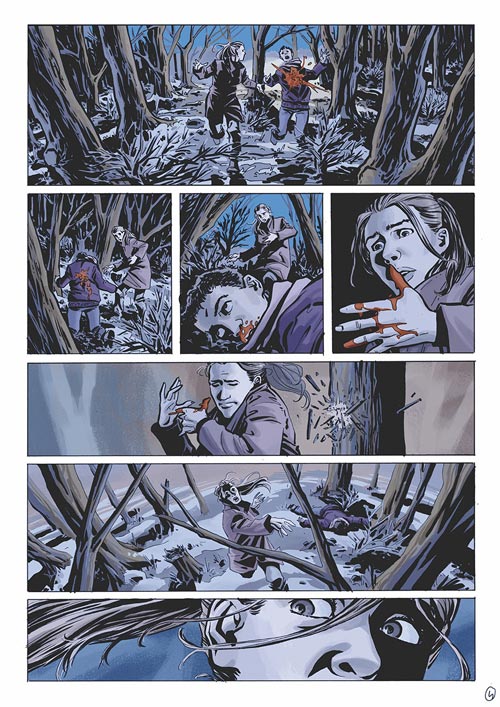 |
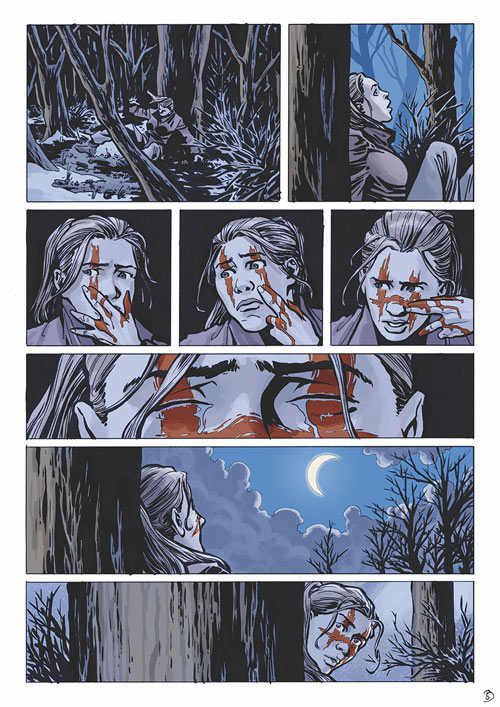 |
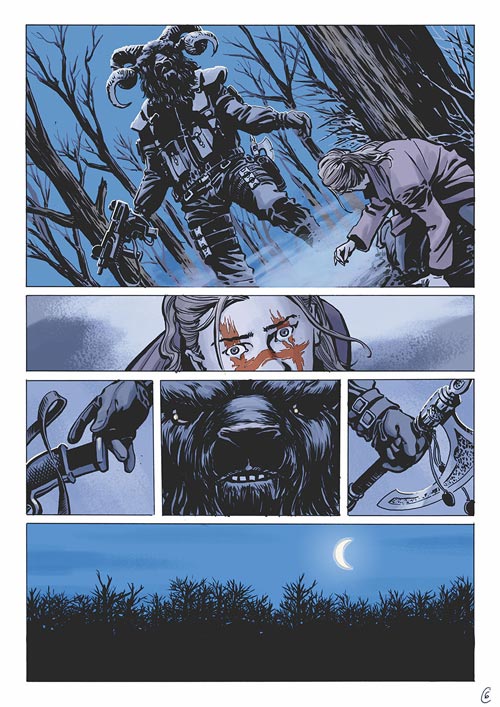 |
*********
Vince Brusio writes about comics, and writes comics. He is the long-serving Editor of PREVIEWSworld.com, the creator of PUSSYCATS, and encourages everyone to keep the faith...and keep reading comics.




